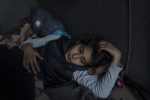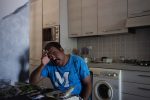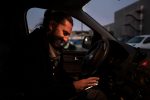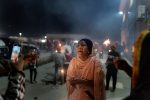Pictures by Massimo Berruti
Text by Ahmad Ejaz
Latitude : 41°53′30″ North
Longitude : 12°30′40″ East
Latitude : 43°54′33″ North
Longitude : 12°54′59″ East
Latitude : 37°05′02″ North
Longitude : 15°16′34″ East
Latitude : 32° 53' 14″ North
Longitude : 13° 11’ 29″ East
Latitude : 30° 10' 47″ North
Longitude : 66° 58’ 30″ East
Ilyas, originally from Kashmir, is now head chef at the Gustamundo restaurant, where he has found his place between the hob and the spices. It has been a long journey, and it has taken four years of hard work for him to get to this point.
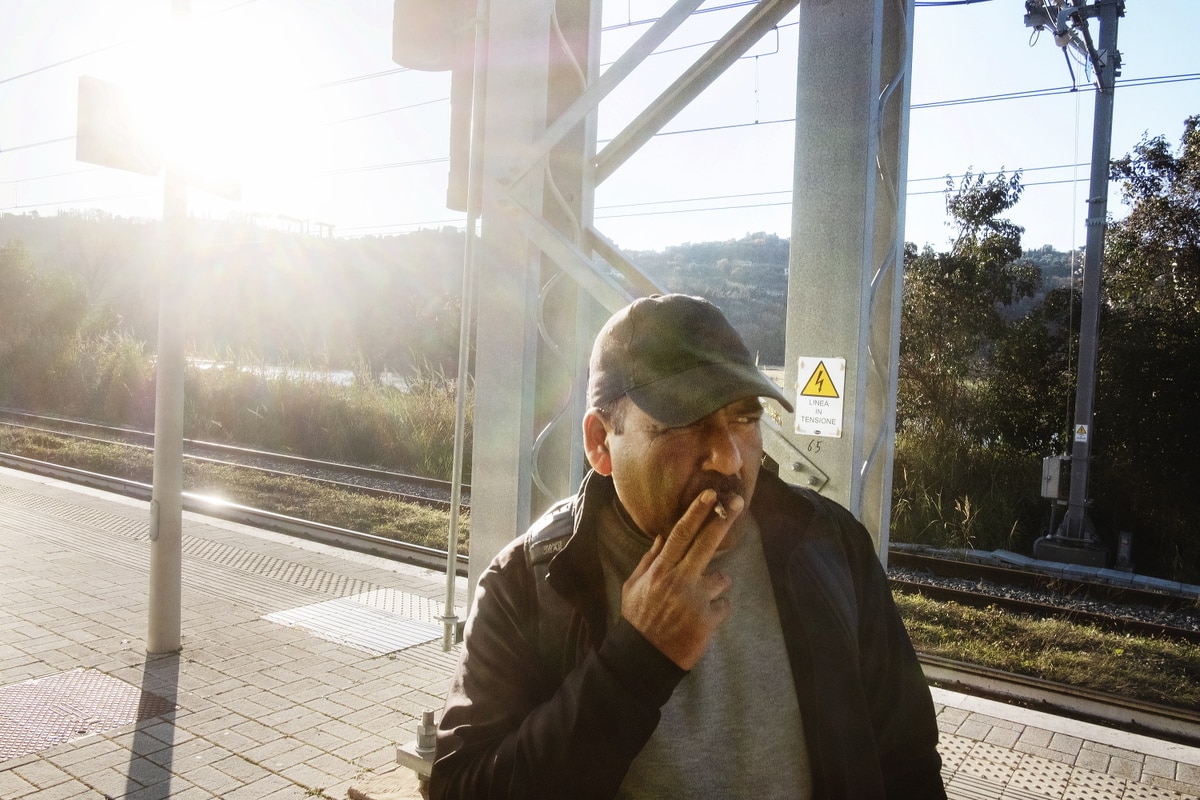
Listen to Ilyas
Translation on the right.
“I live near Rome and have to spend two and half hours commuting to and from work. I have a house here, where I live all alone.
I do have a job and a work contract too, thanks to Allah Almighty.
My two sons will join me soon. I am so happy.”
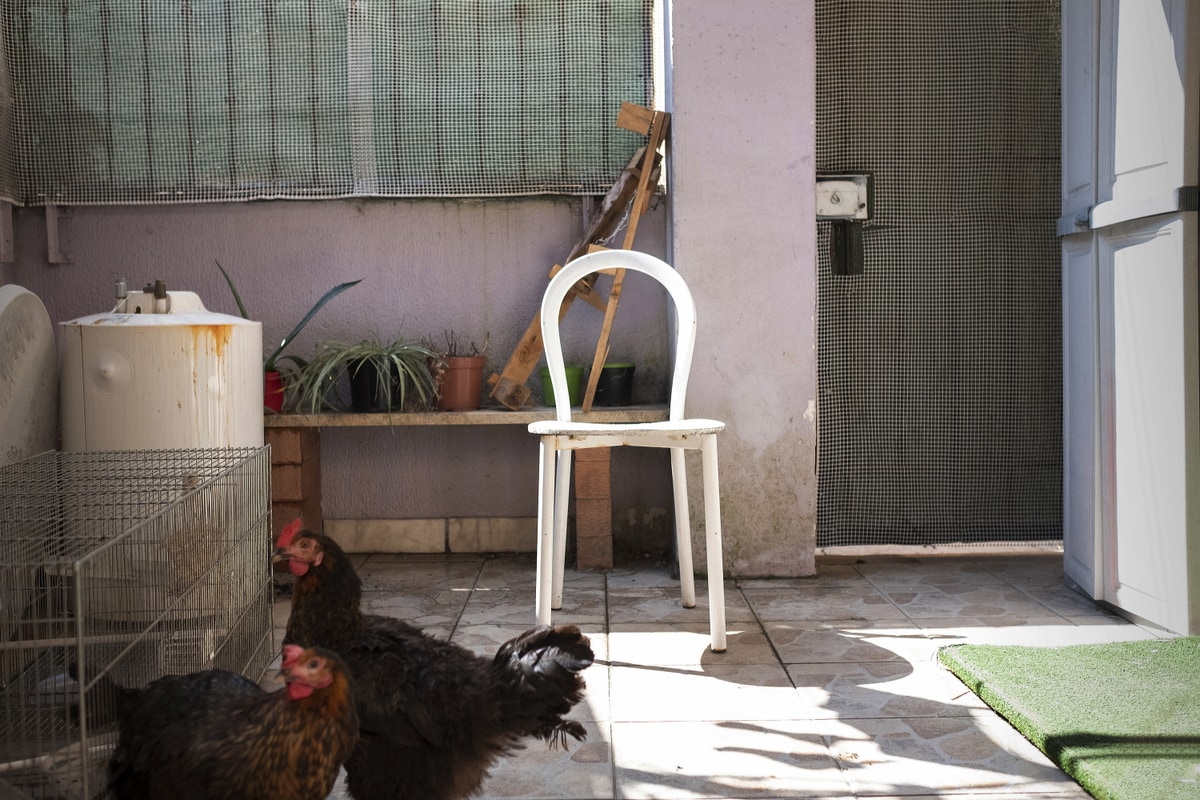
pic

text
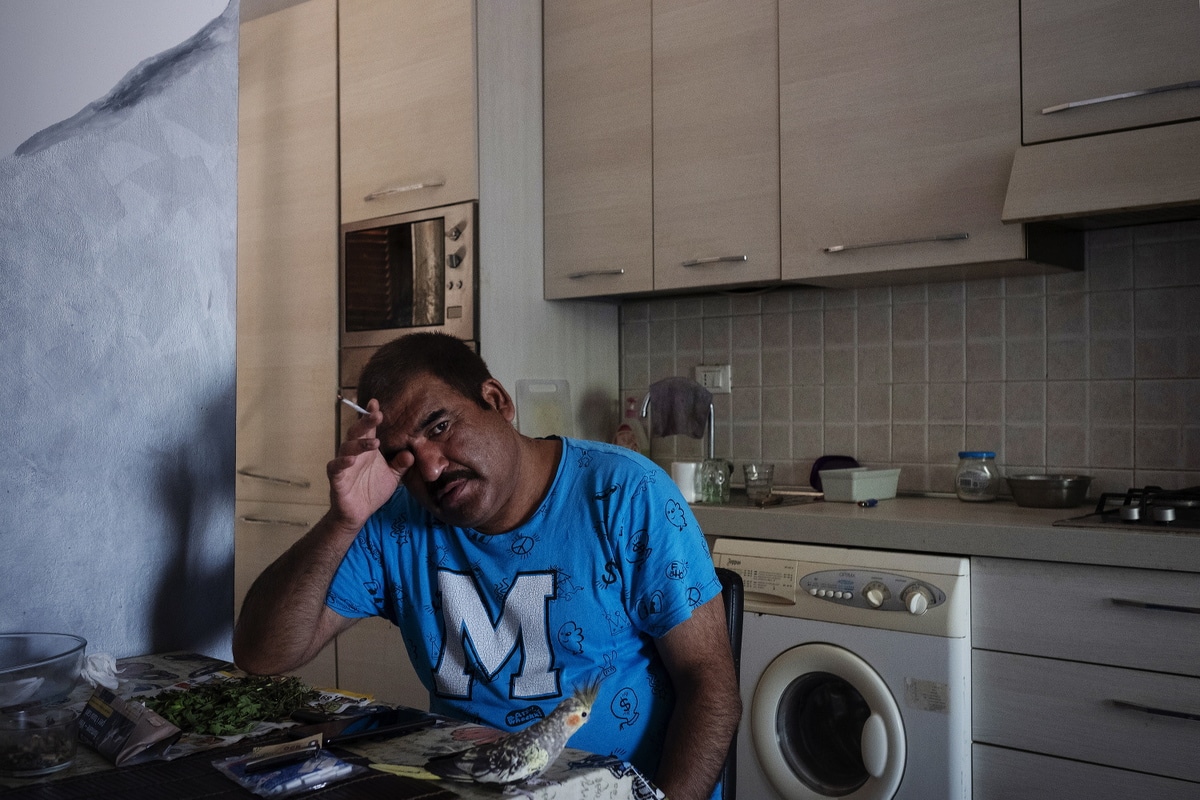
pic
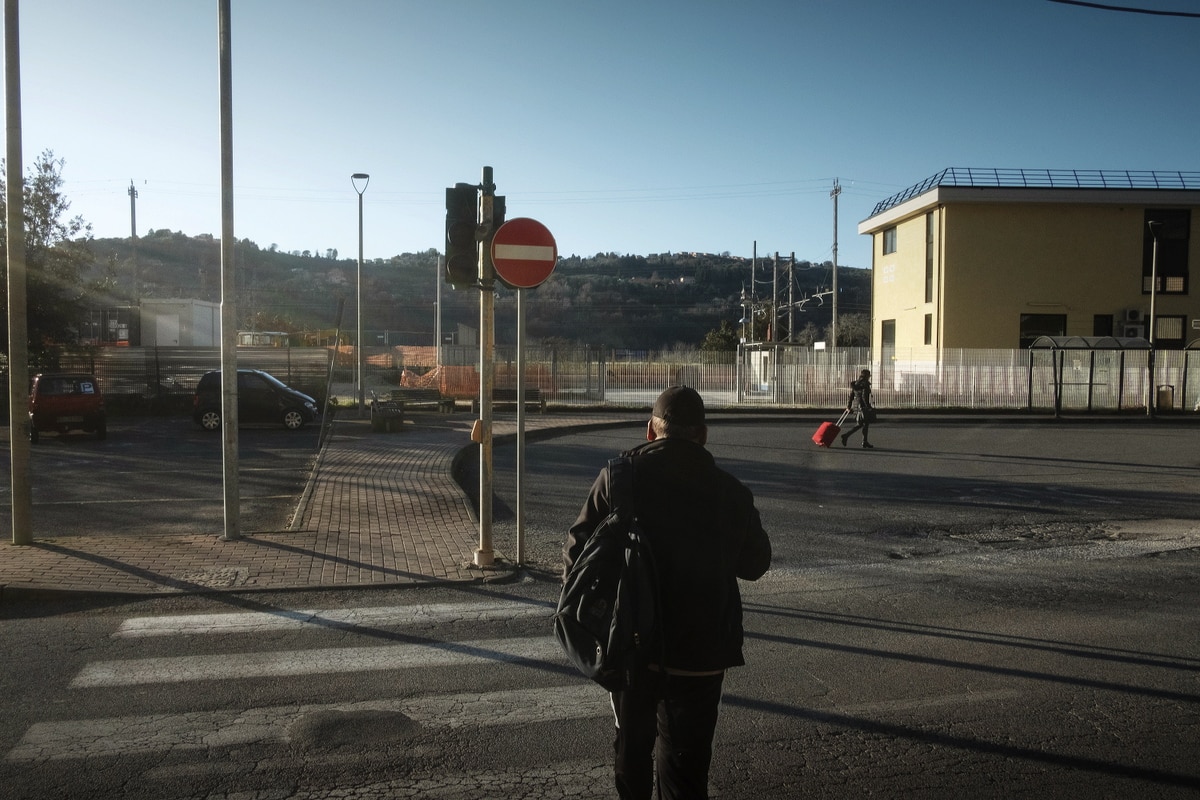
pic

text
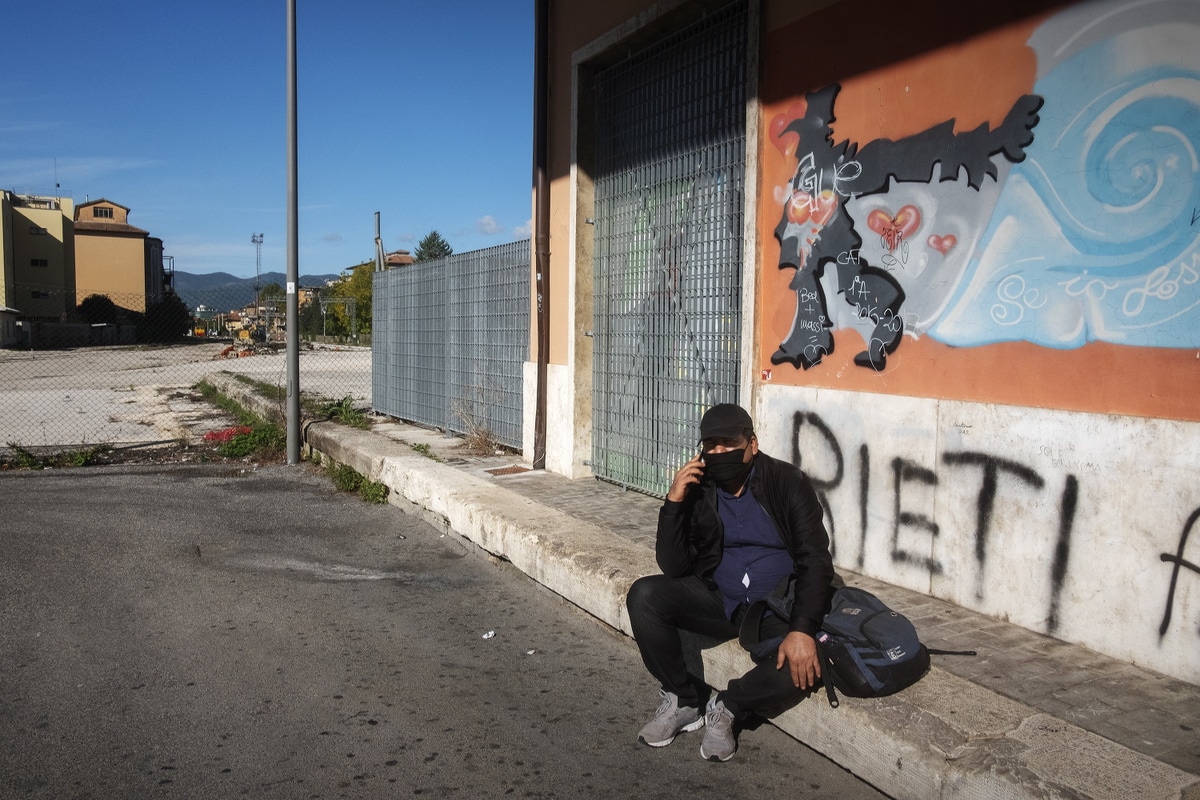
pic
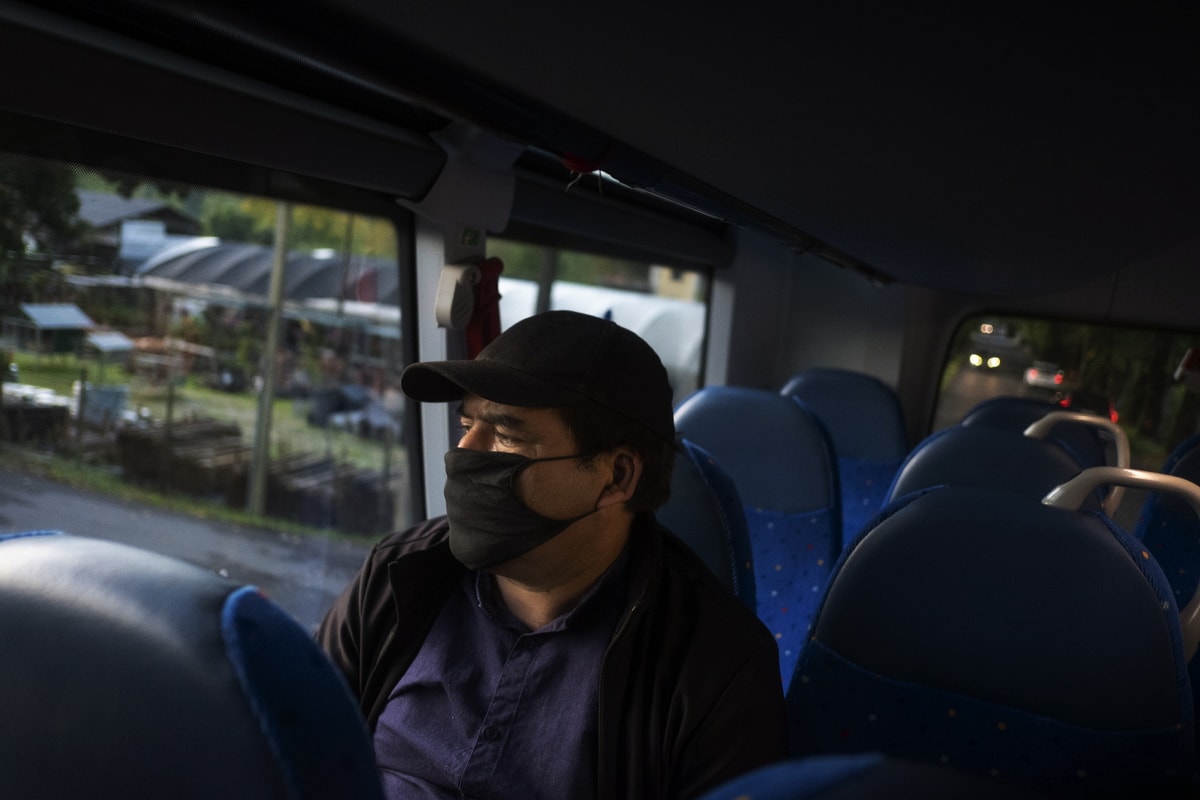
pic
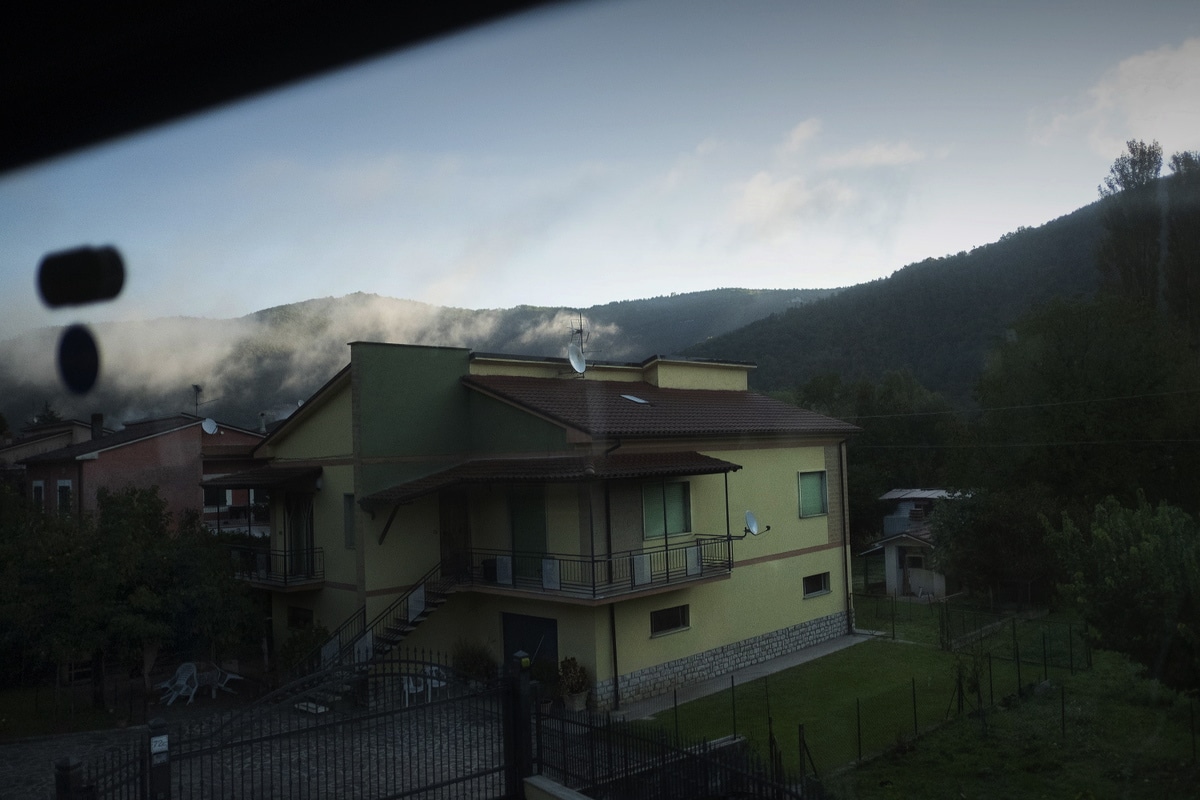
pic

text
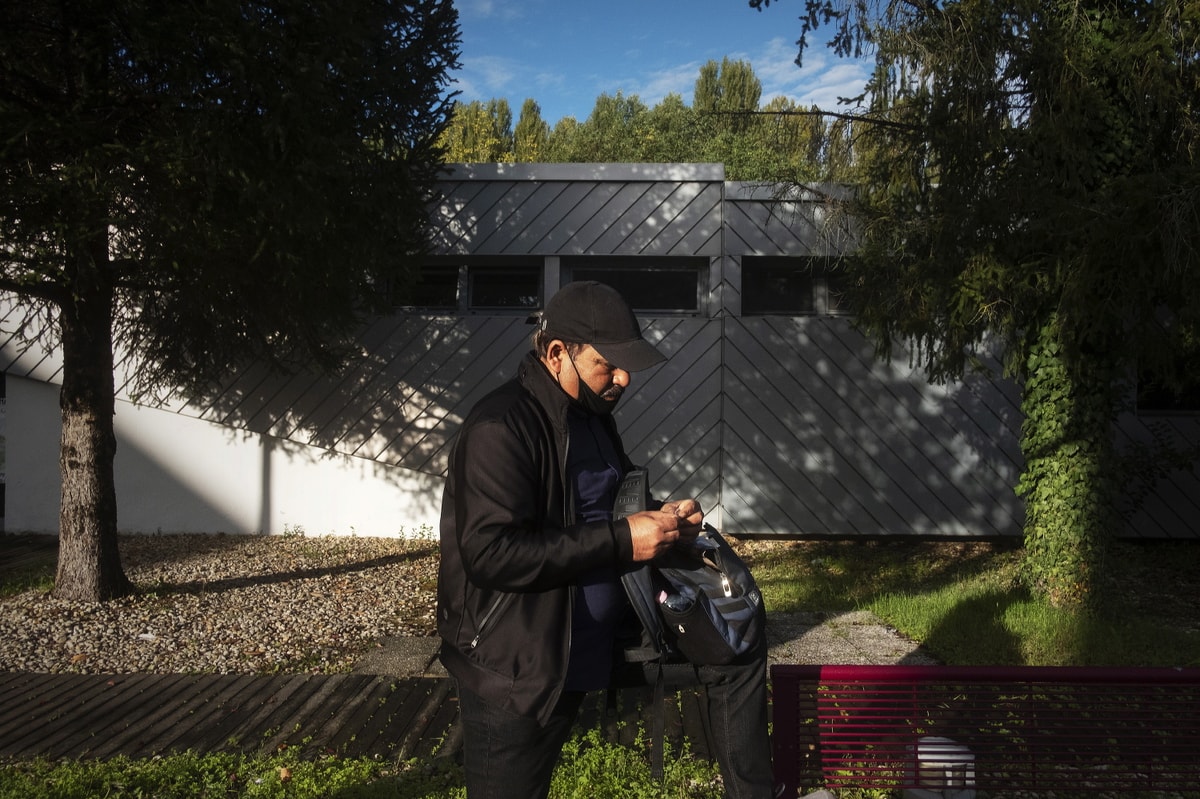
pic
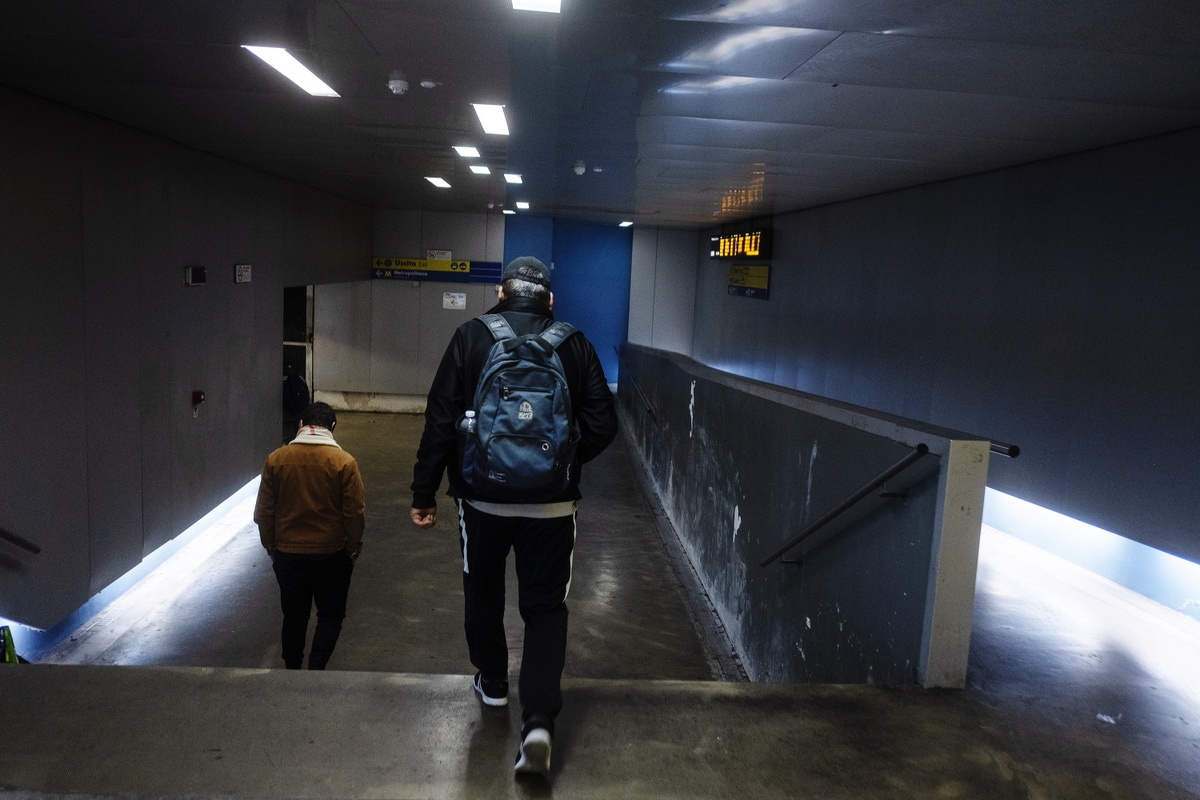
pic
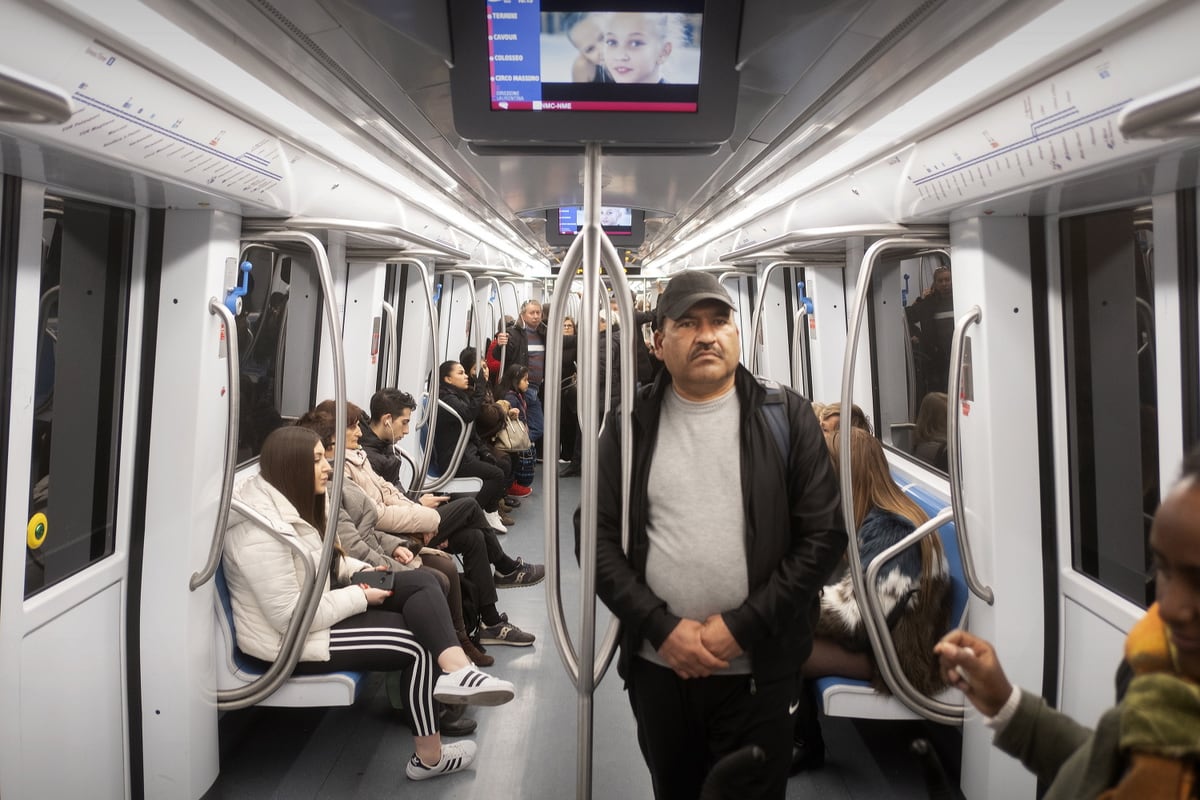
pic

text
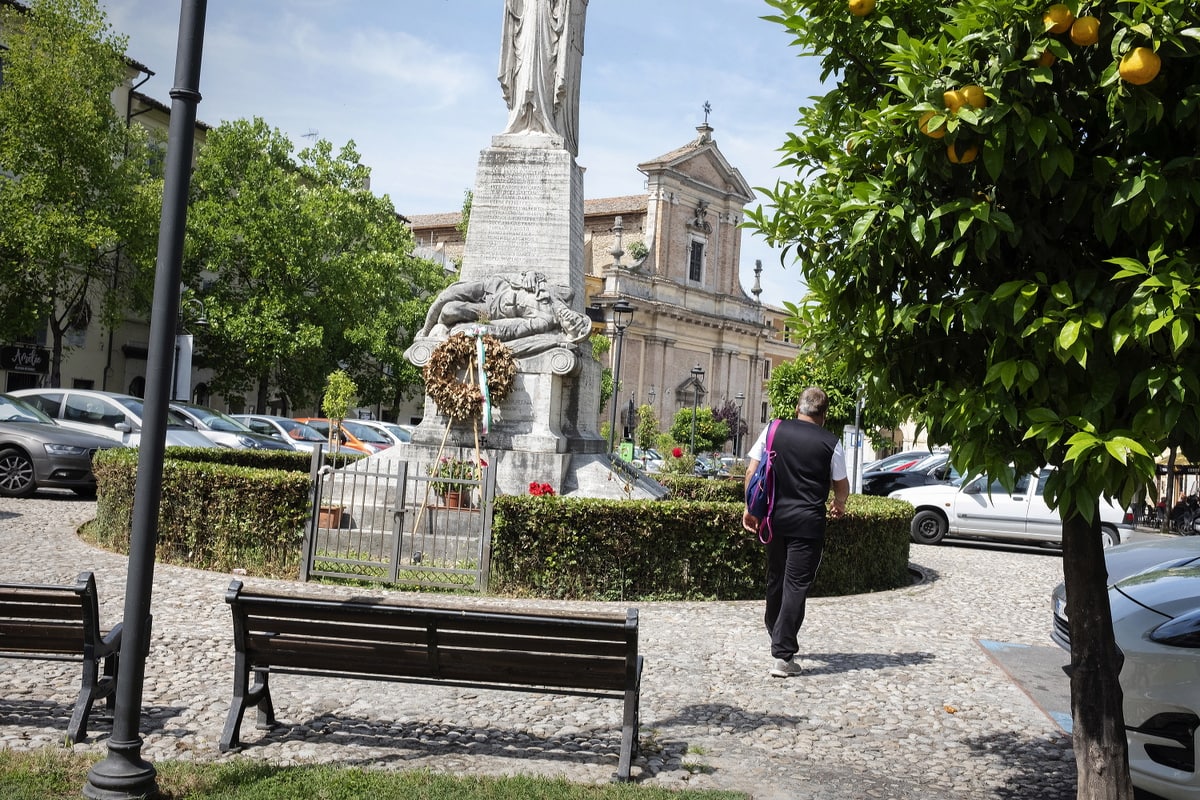
pic
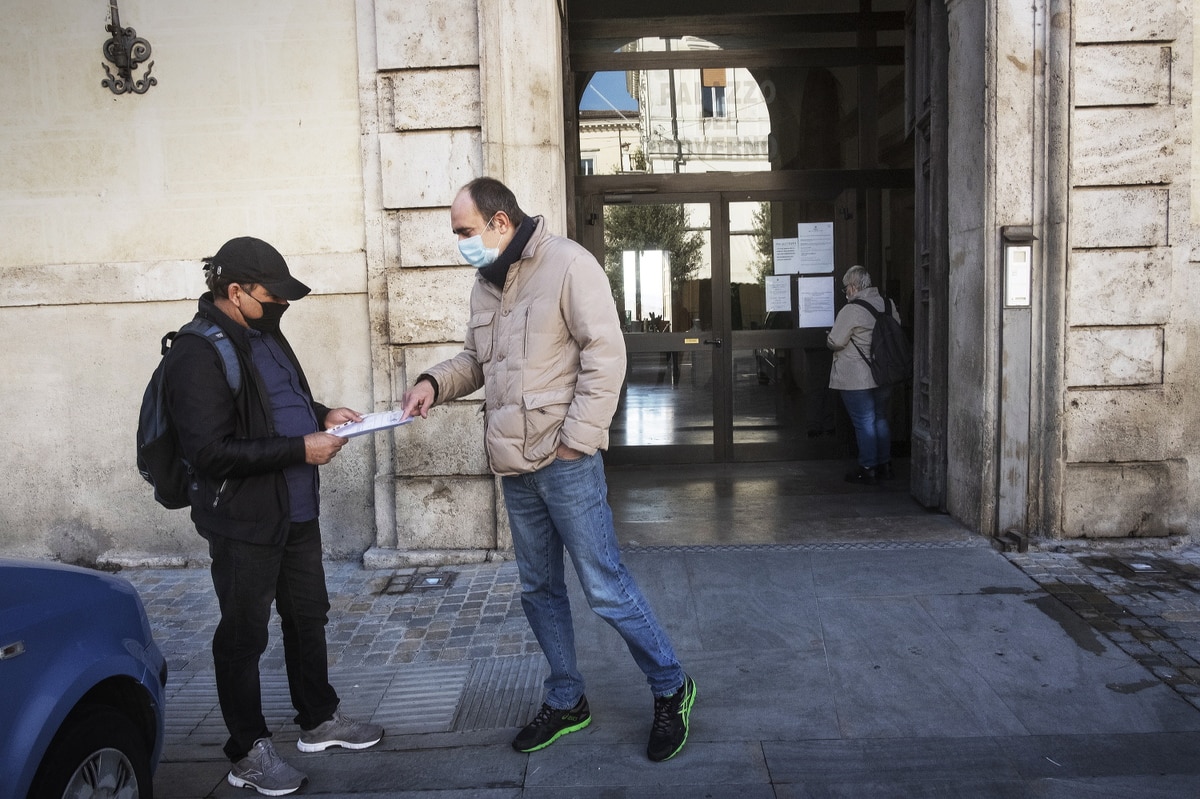
pic
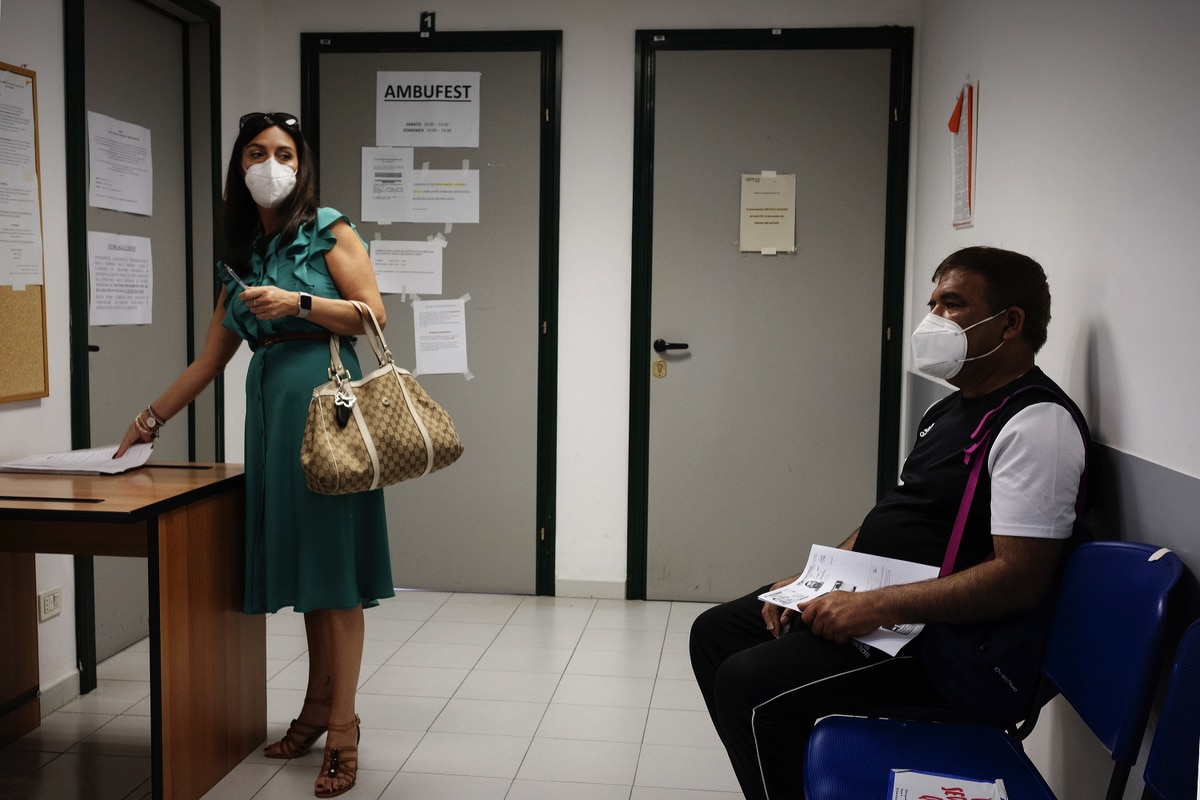
pic

text
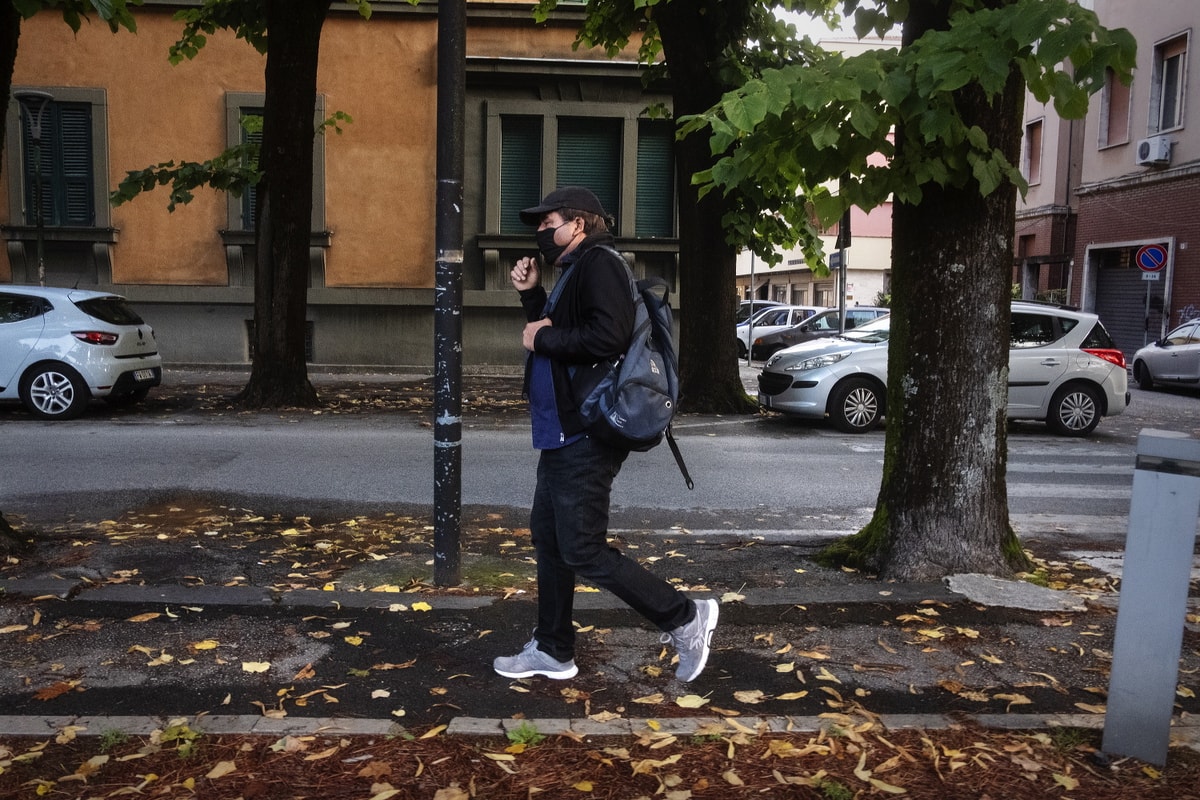
pic
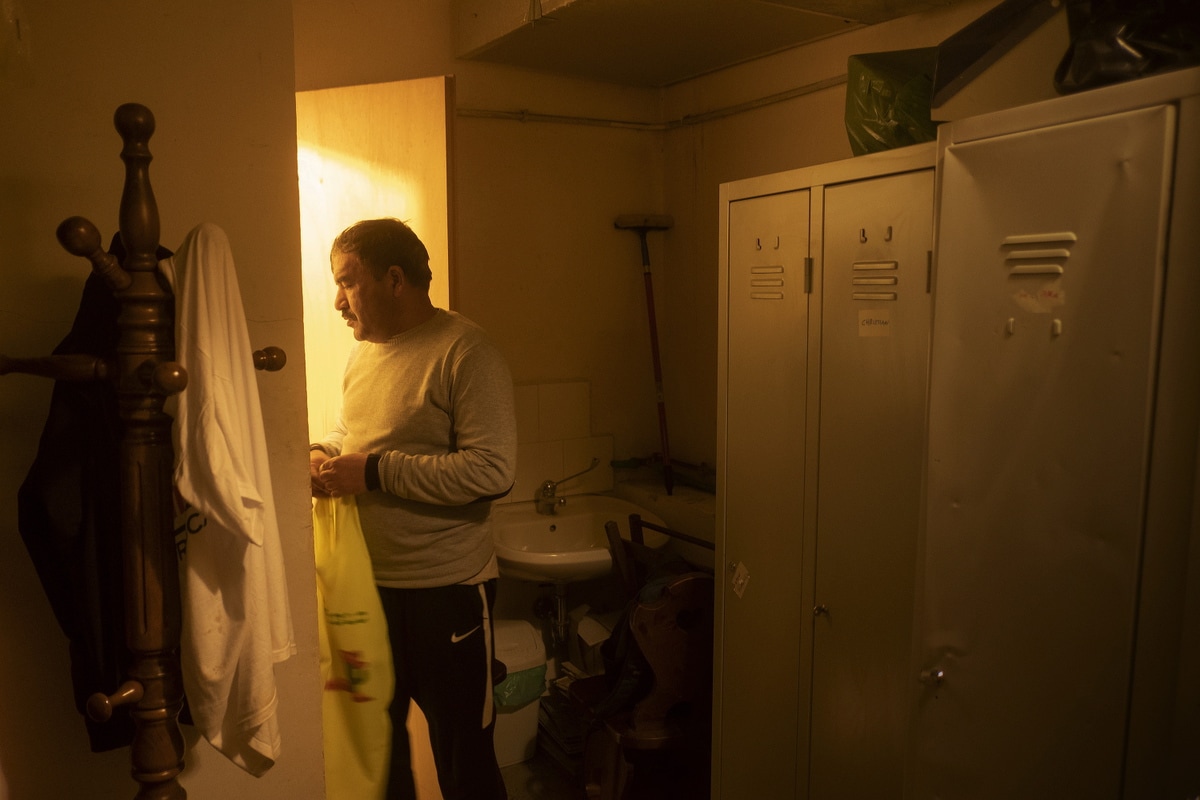
pic
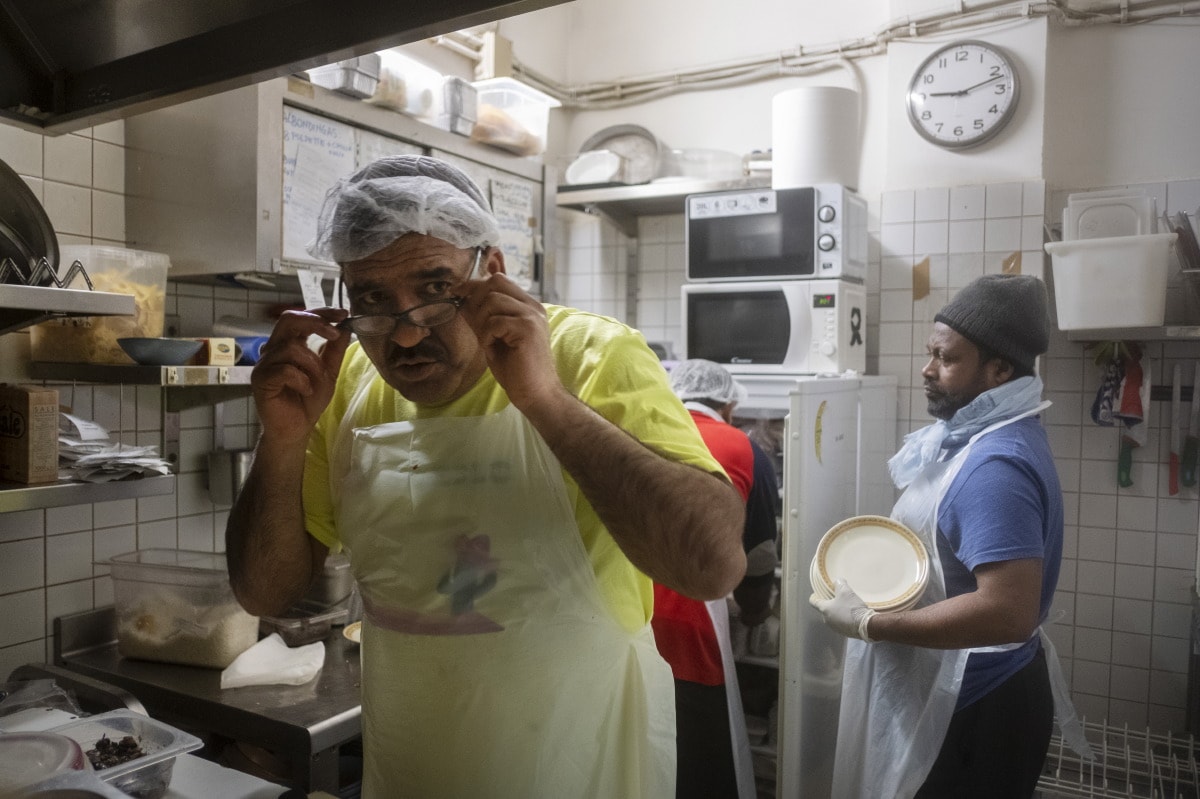
pic
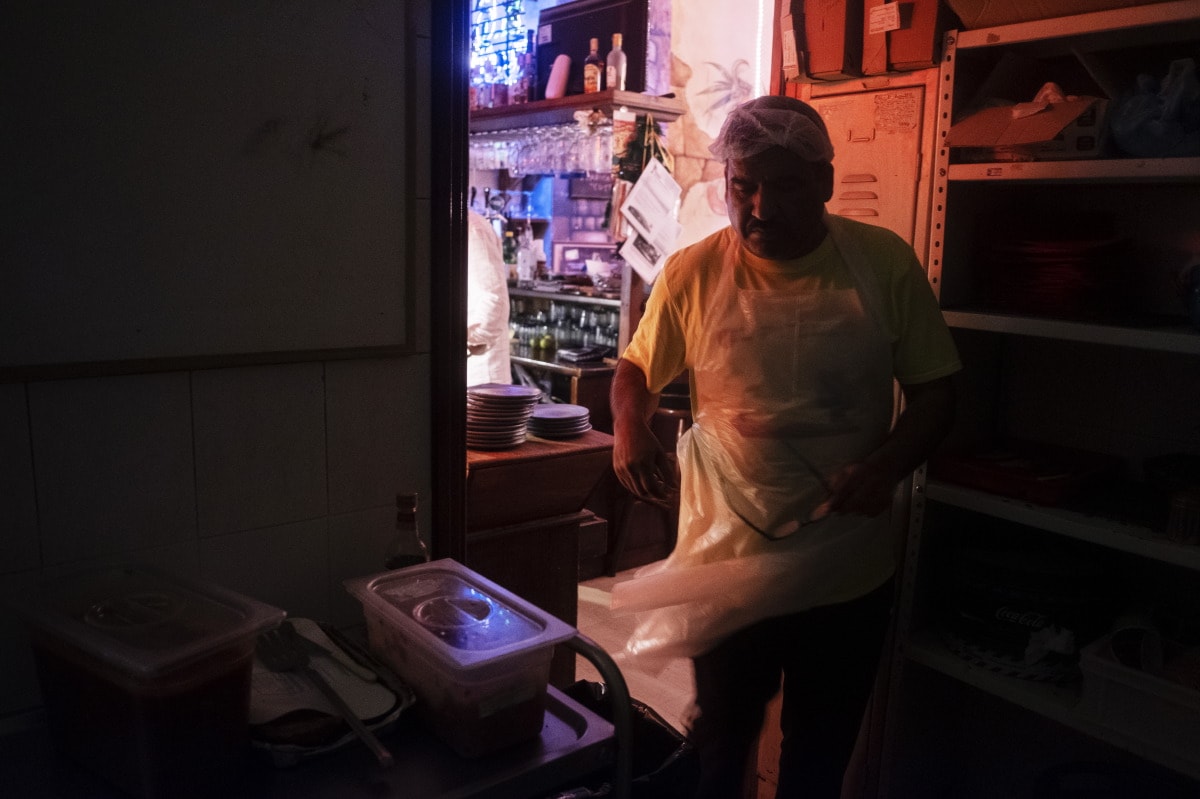
pic
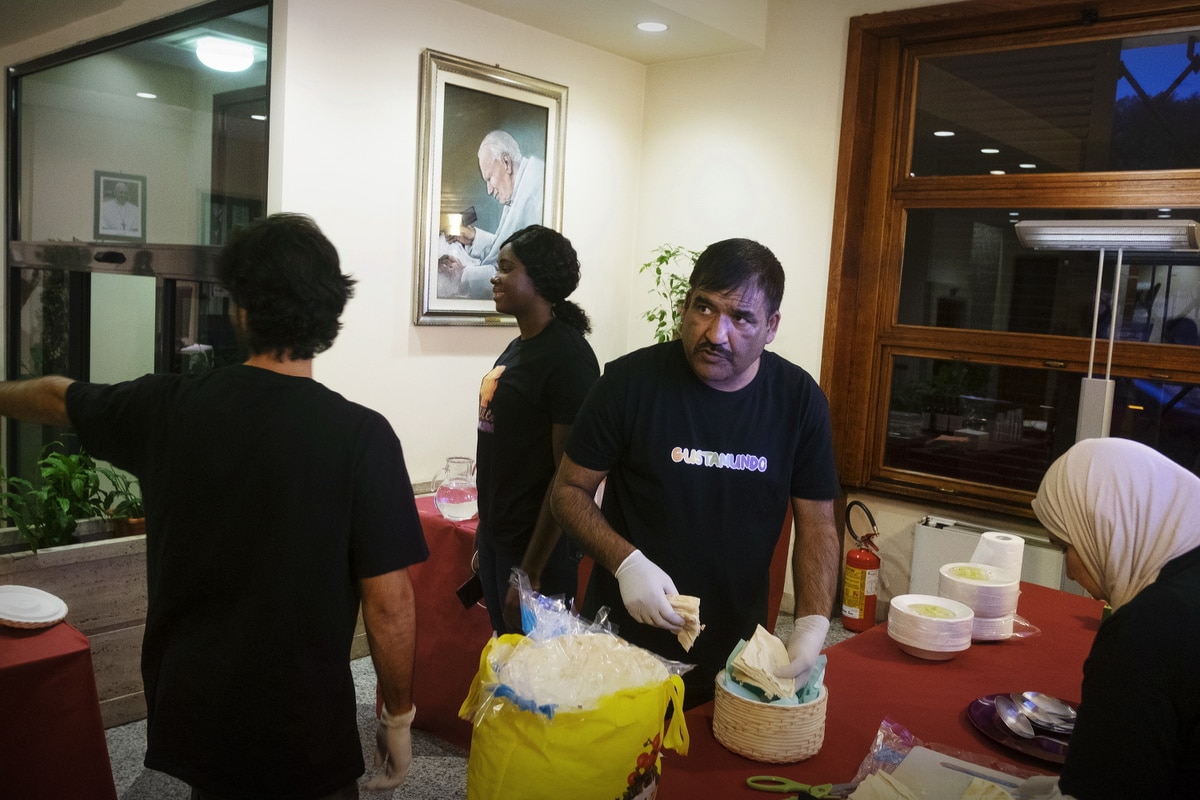
pic

text
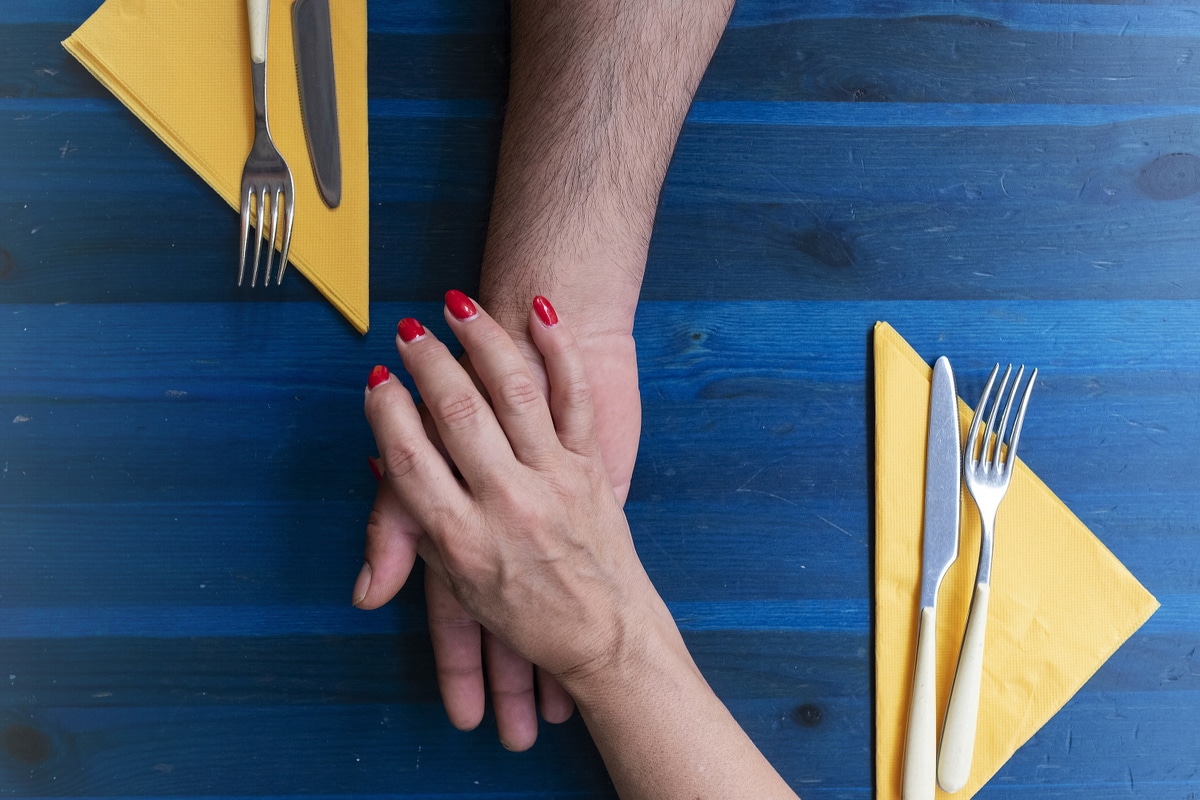
pic

text
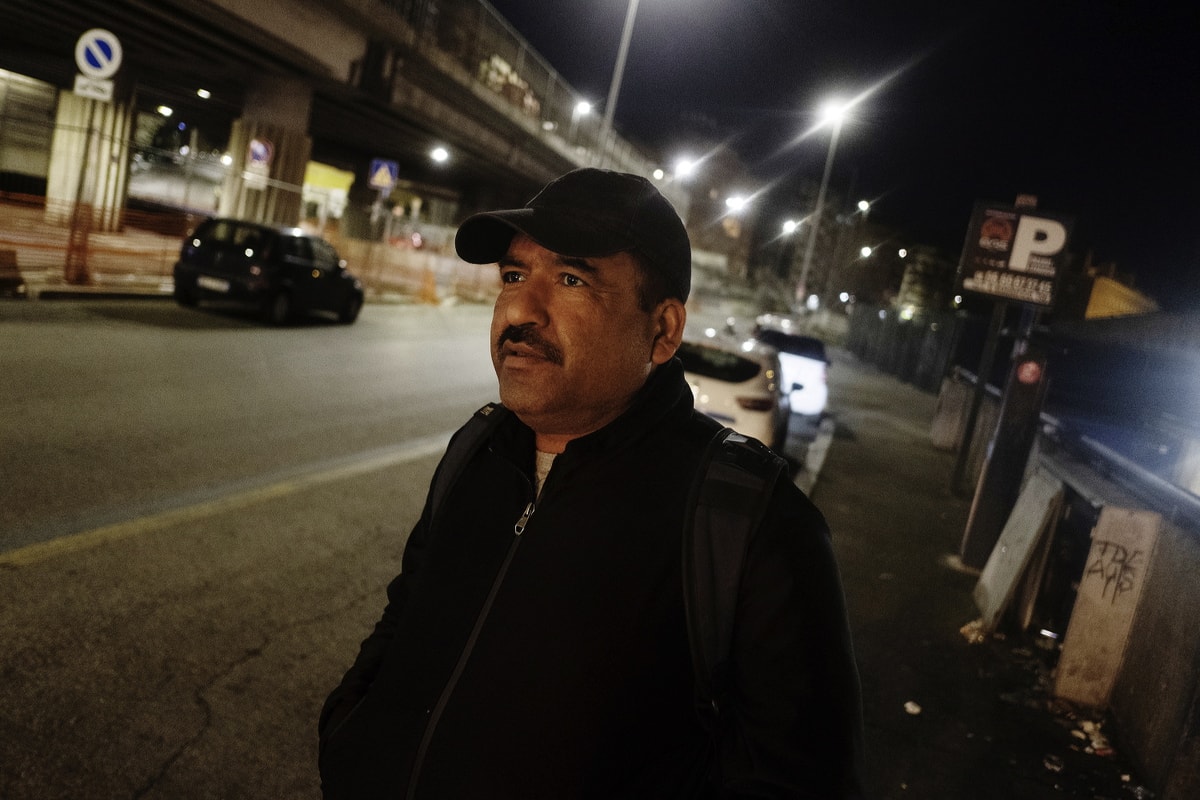
pic
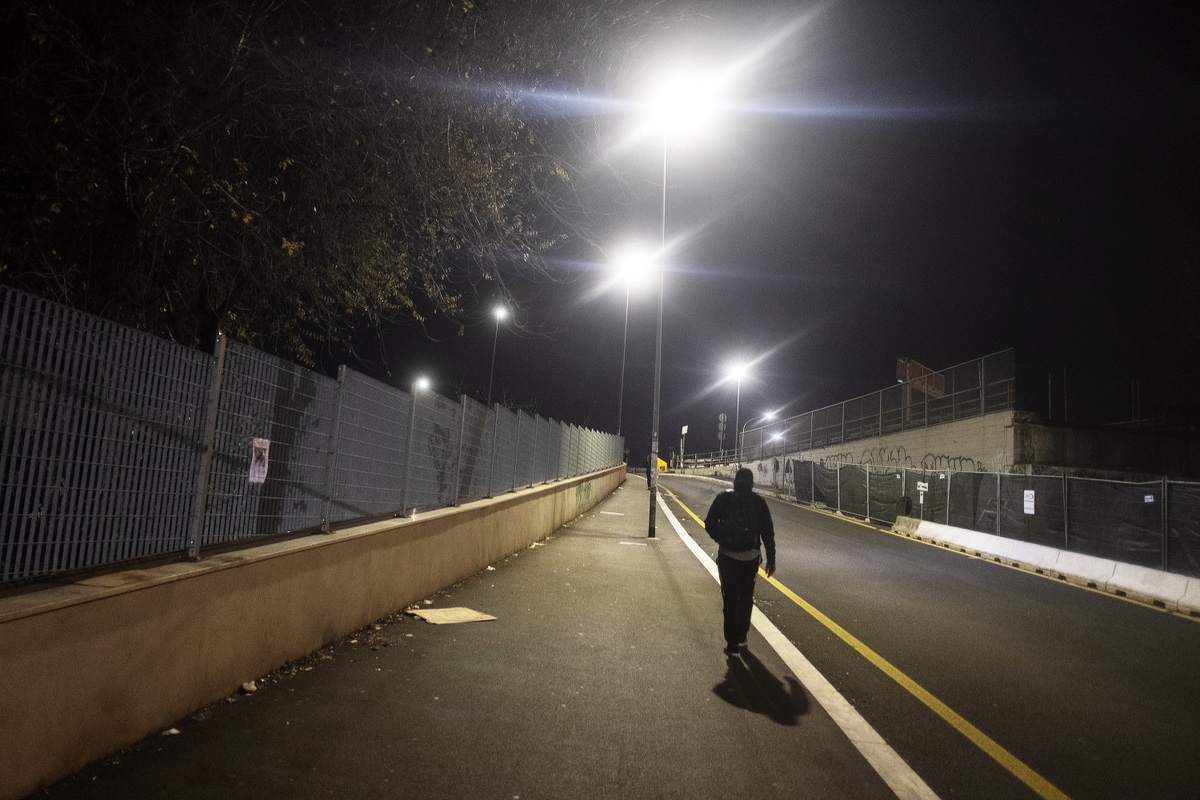
pic
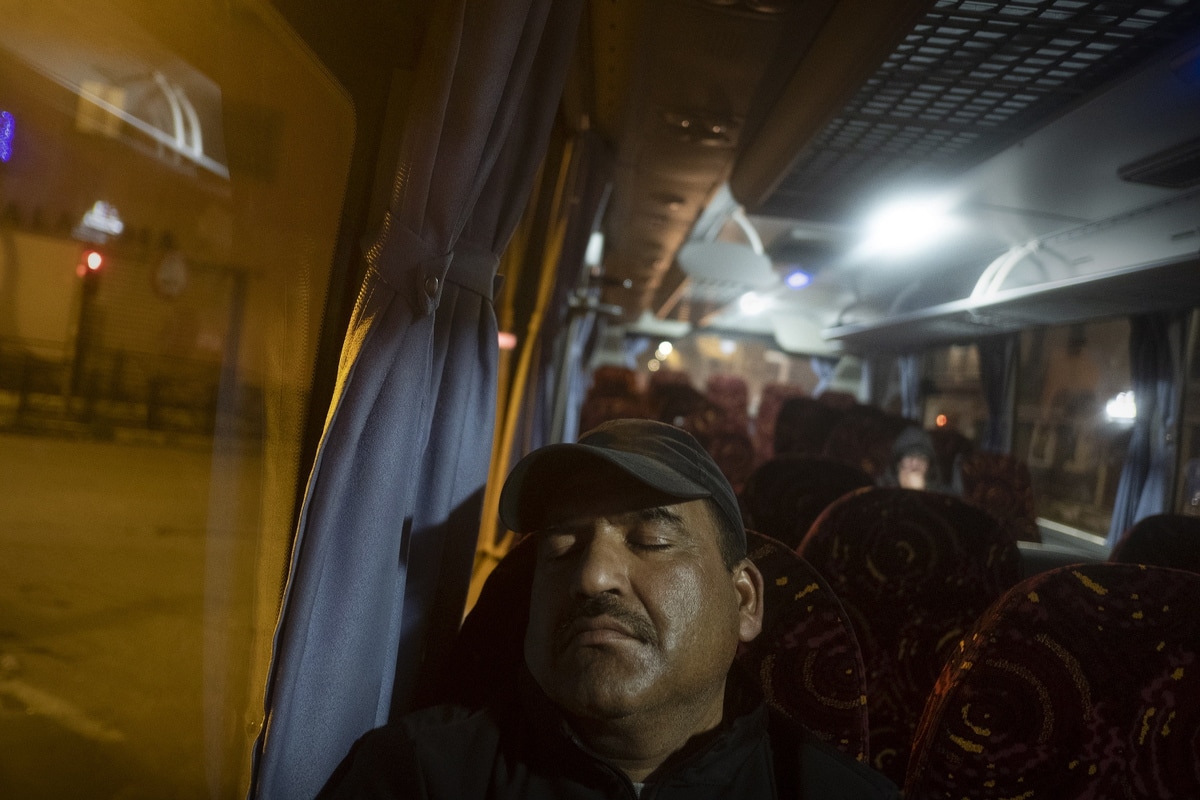
pic

text
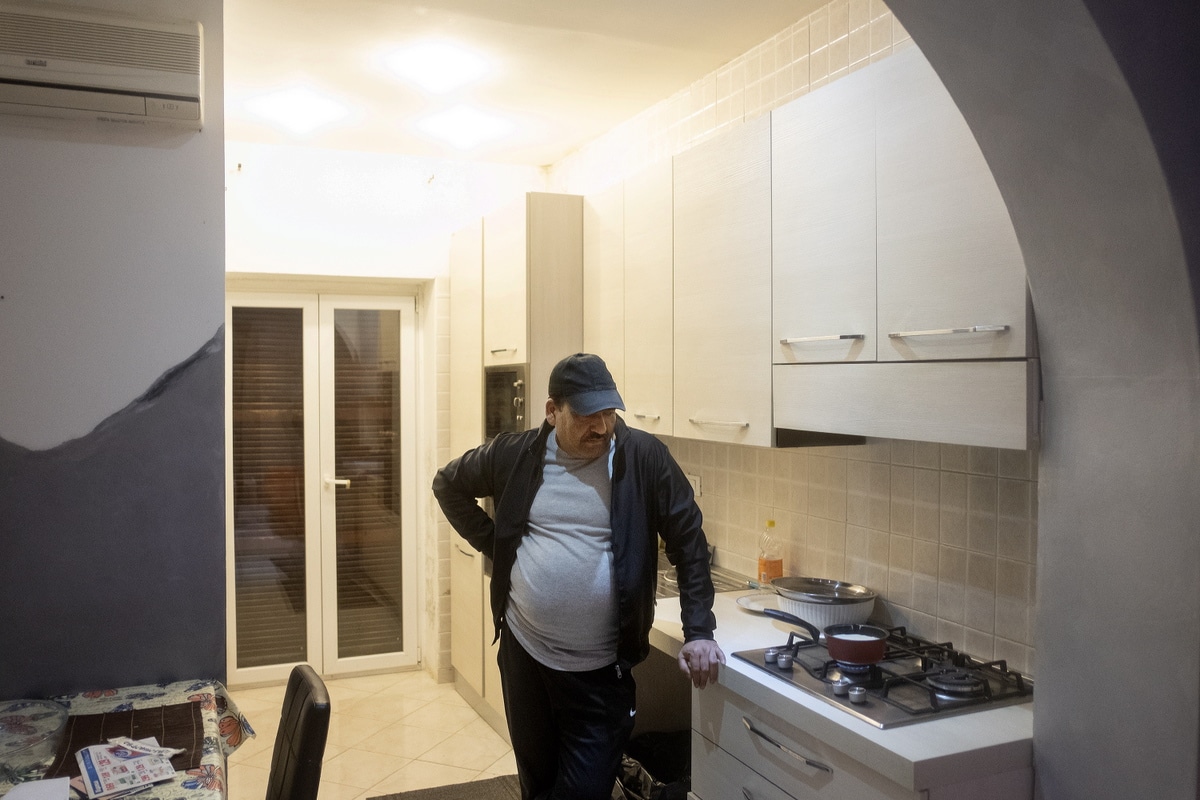
pic
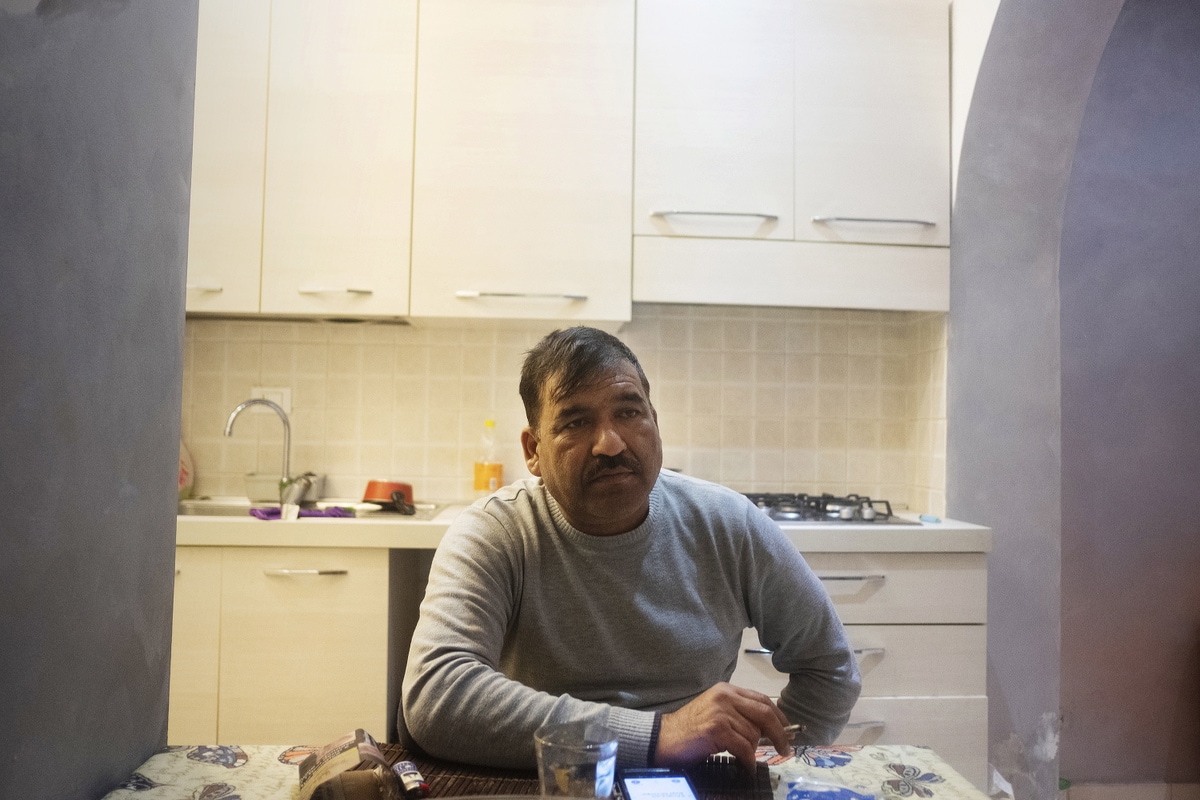
pic
In 2012, Ilyas left Kashmir to seek survival for himself and his family elsewhere.
Born in 1971 in Kotli, a town on the banks of the impressive Poonch river, Ilyas was the eldest of eight siblings, four boys and four girls. He started working at his father’s small street-food stall when he was just ten years old – poverty meant he didn’t have the luxury of a long childhood. All he remembers from his youth is the ease with which he learned to swim in the many waterways around their home, though he never saw the sea. His homeland had suffered years of war and territorial disputes between India and Pakistan, and in 2012, Ilyas left Kashmir to seek survival for himself and his family elsewhere. He applied for a passport and, as happens for many in Pakistan, where official birth records are not always kept, and where birthday celebrations are a privilege of the wealthy only, officials at the passport office allocated him 1 January as his birthdate. Armed with his paperwork and this new birthday, he arrived in Libya. His is a sad, yet common story – he struggled to stay alive as he took odd jobs, suffered through scams and felt tremendous fear: Libya was a country at war where migrants lacked protection.
So he decided to undertake the deadly journey to the shores of Europe. For 1,200 dinars (equivalent to around 930 US dollars at the time) human traffickers offered a ticket to Europe on a crowded rubber dinghy. This is how Ilyas, on a morning in July 2013, together with some 90 desperate men, women and children from Africa and Asia, set off from the shore of Tripoli. It was Ilyas’ first experience of the sea. Once they left behind the Libyan coast and territorial waters, the sea was the only master of their vessel. Throughout the ordeal of their 20-hour journey, the boat struggled to stay on course. There was no mercy from the sun high in the sky, with the tightly packed passengers forced to stay still or else losing their balance, and risking knocking over others and capsizing the boat. There was no food or water, nor even tears. Only the fear that accompanied every wave that buffeted their small craft.
Ilyas says now that he never believed that this would be his final journey.
When night fell, darkness obscured everything. Eyes wide with terror sought comfort in the gaze of others. Ilyas tells us about many other similar rubber dinghies that were around them, broken down, capsized, their human load scattered in the sea. The screams, the outstretched hands, and then the silence. In the end, his boat failed as well, too heavy to hold all that despair. Ilyas says now that he never believed that this would be his final journey. There were still too many things left to do in his life. And he remembers that as his boat sank, his entire life unfolded in front of his eyes: his children, his Kashmir, the food stall that he used to work on with his father, his wife’s death, and his conviction that his story could not end like this. Then he remembered that he could swim, and with that he fought back the clutches of death.
A little later on, a passing Norwegian ship rescued the survivors, and took them to Syracuse. Then they moved to the migrant centre in Pesaro, Italy, and finally to the centre in Poggio Mirteto in the province of Rieti, where he still lives. Next came a residency permit, and a job. At sea, the memory that he could swim saved him. On land, the skills he learned cooking with father gave him a new lifeline. In Gustamundo, like many other kind people in Italy, Pasquale Compagnone welcomes refugees and asylum seekers, and to that end he facilitates catering courses for them to help rebuild their lives independently. The idea is simple, no one is left behind.
“Oh eagle, don’t be afraid of the upwind, it will help you fly higher.”
During the last century, the great Pakistani poet and philosopher Allama Muhammad Iqbal, one of the main inspirers of the Pakistani Movement, wrote:
“Oh eagle, don’t be afraid of the upwind, it will help you fly higher.”
Ilyas has made these words his own. Meeting Pasquale gave him hope. Within the curry-coloured and blue walls of Gustamundo, he realised he could cook without further fear for his life, and he took up the challenge. A life full of grief and poverty had not dampened his desire for happiness and success. Today we see Ilyas established in his career at the restaurant whilst working on his plan to reunite his family of five children who remained in Pakistan. Two of his teenage boys have already been successfully reunited with him. Ilyas explains in simple terms that his salary in Italy is not enough to pay for their studies, but his dream is that they will learn Italian, and together they will open a small kebab takeaway shop.
Ilyas is not afraid of the upwind, so he continues to fly between the chefs, and ovens at Gustamundo, making sure that nothing in the kitchen is missing – always with a smile as he keeps his team together.
Whilst smoking his customary rolled cigarettes, his hair auburn with henna colouring, Ilyas stares into the distance, and talks about his life so far, acknowledging that history repeats itself. He thinks of his sons and himself in the same way that his father did with the small roadside food stall, united, because “no man is an island”. Later, a bigger house and relocating the other children to Italy will complete his dream. He smiles and continues: his dream also includes a car. In Pakistan it was impossible for him, and others like him, to own a car because it was too expensive. In Italy, the problem is getting a driving licence. Since he doesn’t speak Italian well enough, it is currently out of reach for him. He realises that not speaking Italian well is a problem, and he recalls the many “I’m sorry”s he has received when applying for jobs. “You can be the best cook of Indian cuisine, but if you can’t speak the language, they won’t give you the job.”
However, Ilyas is not afraid of the upwind, so he continues to fly between the chefs and the ovens at Gustamundo, making sure that nothing in the kitchen is missing – always with a smile as he keeps his team together. Ilyas is deeply grateful to Italy. He loves the country that has welcomed him and allowed him to be reborn, far from the traditions and complications of Kashmir, which remains rooted in his memory, but is no longer in his heart.

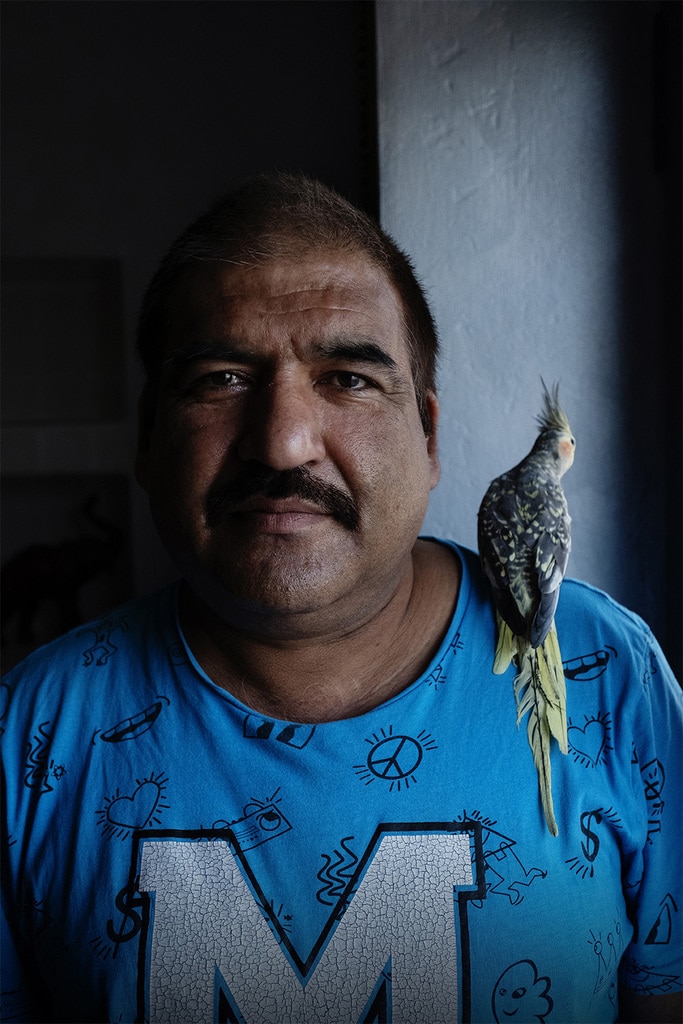
Listen to Ilyas
Translation below.
“Before, I was worried for my kids.
Whenever I’m on the train, the metro or the bus, my only thoughts are about my past, my family and my children, whom I have not seen for a long time.
Now I am so happy and grateful, because finally they will be with me soon.”

